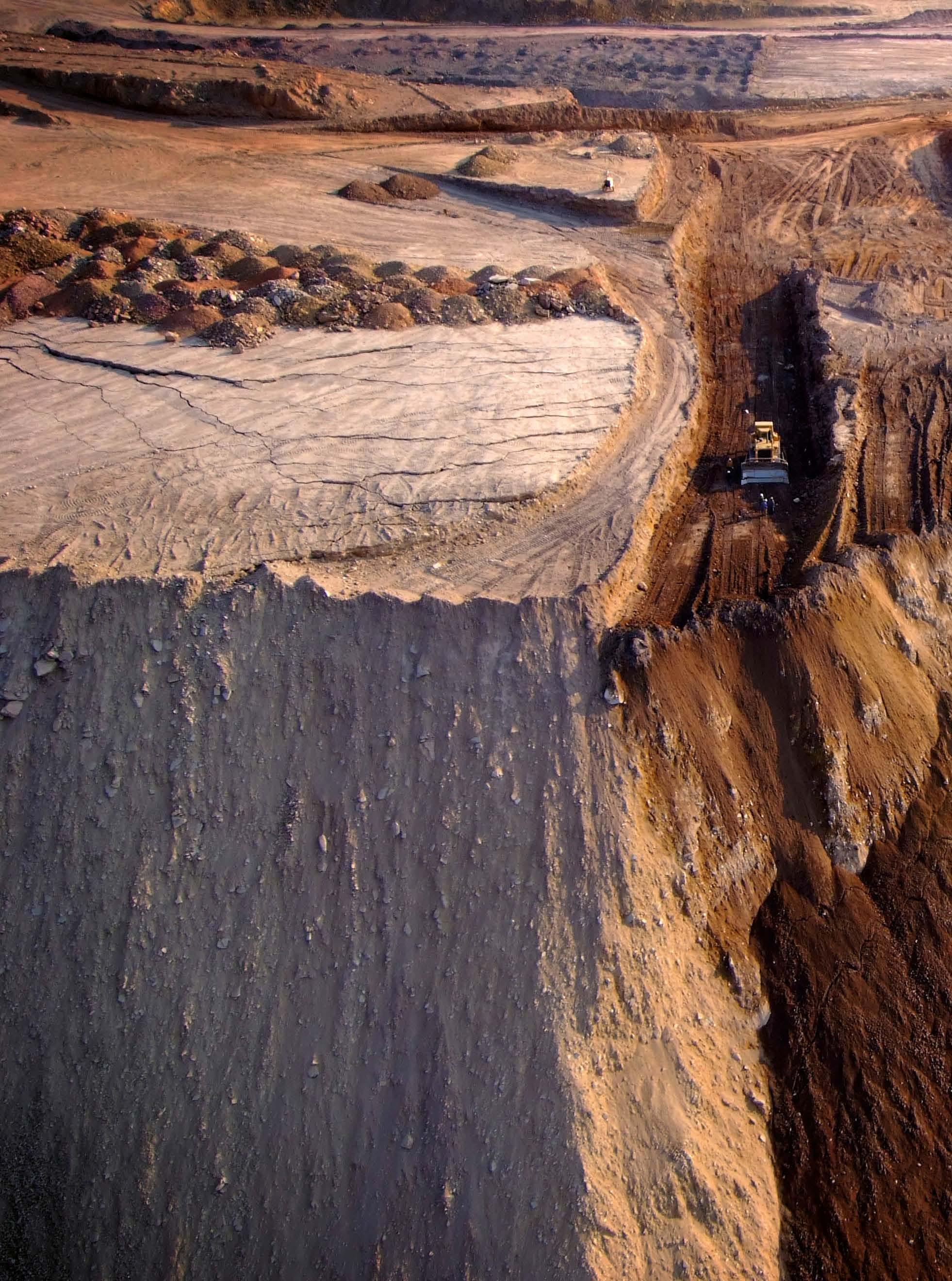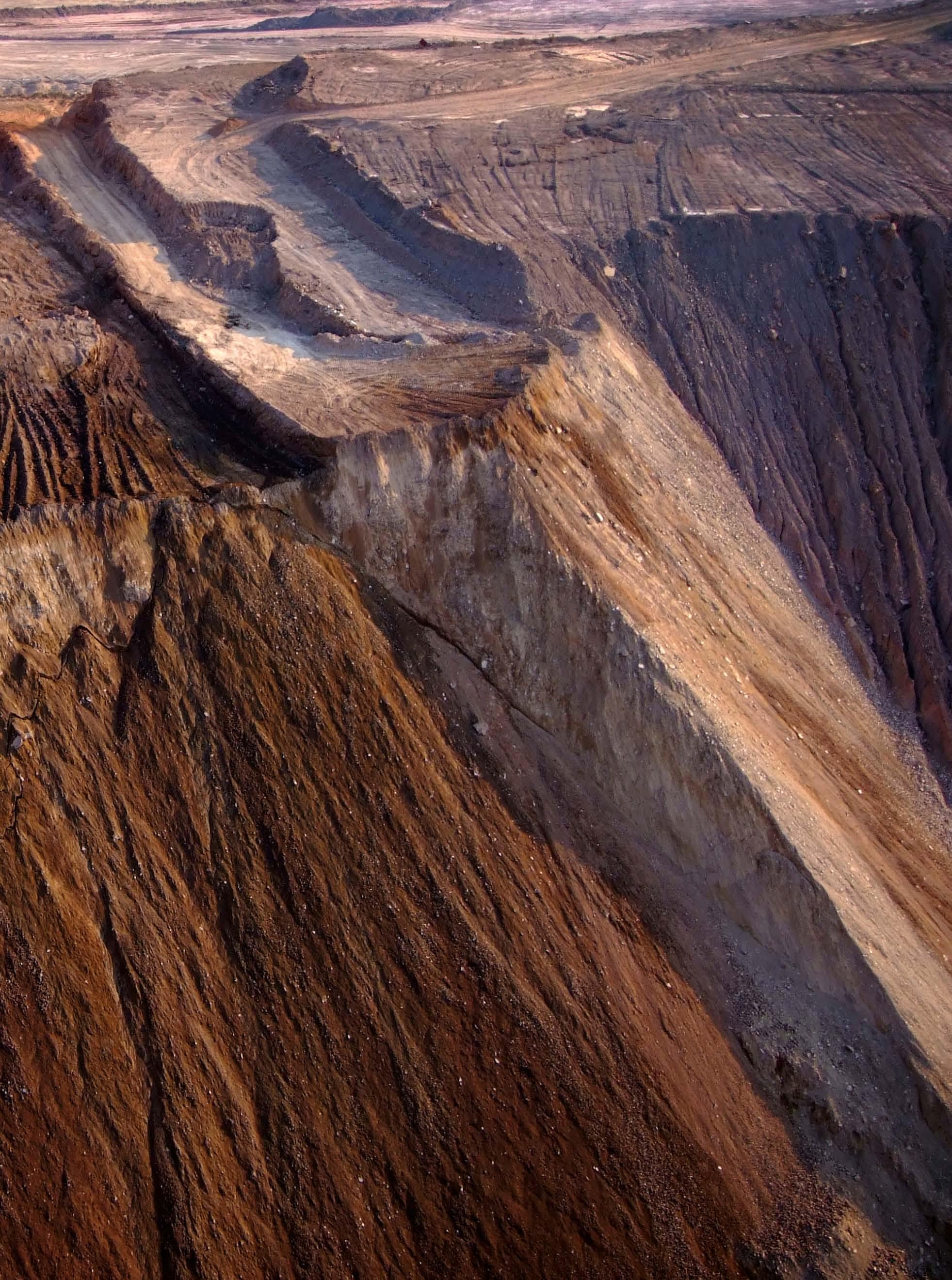
7 minute read
The Plunge That’s Saving Africa


Advertisement
Mining may be the reason
Africa made it onto the global map in the first place, but the choke on metals prices in the past two years leaves the continent perilously placed.
It’s a grim story. Gold prices have tumbled 20% in the past two years, platinum has sunk to its lowest levels since the financial crisis in June 2008 ($940 per ounce) while oil has tumbled from more than $100 per barrel to around $45.
It’s been nothing less than a rout, which has upended the power dynamic in boardrooms and stock exchanges across the world.
Take Anglo American, the definitive South African blue chip which traces its roots back to 1917 when German immigrant and diamond buyer Ernest Oppenheimer managed to scrape together £1-million from investor’s to mine for gold under Johannesburg.
For so many years, Anglo was the Rolls-Royce of South Africa’s stock market. Today, it’s the equivalent of a clapped-out Lada.
The trajectory of the other one-time global giants is similar: BHP Billiton (down 36% in a year), Rio Tinto (down 26%) and Glencore (down 57%).
For some, this crash has only vindicated their view that smart investors should have been avoiding commodities for some time.
Charlie Munger, the long-time business partner of Warren Buffett, was never a particular believer in commodities.
“I think gold is a great thing to sew into your garments if you’re a Jewish family in Vienna in 1939 but I think civilised people don’t buy gold,” he said.
Nevertheless, for anyone still sitting in the executive suite at a mining firm, it’s been a horror show.
But the silver lining for Africa is that, perversely, this particular commodities crash might finally present the opportunity for the continent to shake off the tag as the bewitched victim of the “resource curse”.
Right from the time that 15-year-old Erasmus Jacobs stumbled across a shiny pebble in 1866 on the banks of a river on his father’s farm, in a place today known as Hopetown in South Africa’s Northern Cape (which turned out to be a 21-carat diamond), the African mining story has been cast into a particular mould. The narrative is this: rich foreigners arrive, suck the minerals out, and depart, leaving chaos and a society at war over the scraps that are left. That cliché, like all wellpeddled clichés, isn’t always true.
But what is indisputable is that considering Africa holds a third of the world’s natural resources like gold, oil and copper, and two-thirds of the globe’s diamonds, it has precious little development to show for 150 years of fevered extraction.
This is why the notion of the “resource curse” –that being blessed with a ludicrous amount of gold, platinum and metals has ironically only made it harder for the continent to drag itself to a level even comparable with its less well-endowed peers – has stuck.
The statistics back this up. Economists showed that between 1960 and 1990, countries with hardly any natural resources grew two-to-three times faster than countries supposedly in the pound seats. If anything, it should be the reverse – countries with oil, gold and platinum should have outpaced the rest.
The social consequences are even worse.
As a report from global think-tank Chatham House argued, “large resource revenues create a pot that is worth fighting for – since whoever is in power is better able to plunder that pot”.
Many of Africa’s worst wars, its most brutal coups and dramatic social upheavals have commodities to thank - be it oil in Angola, or diamonds in Sierra Leone.
With commodities prices in freefall, however, there’s no telling what impact this will have on a continent which still relies far too heavily on these resources.
Take Zambia, which is pretty much built on copper. More than 80% of Zambian exports are copper or cobalt, so you can imagine that the plunge in the copper price, from $7,500/tonne to just about $5,000 over the past five years has smacked the Zambian economy hard.
The reason for this rout isn’t hard to find: China.
The Asian powerhouse has been hot for commodities for years to fuel its giddying growth. But in the past year, China’s GDP growth has slumped alarmingly amid some rather awkward questions about whether the megagrowth numbers it reported for the past decade were, in fact, even real to begin with.
With China under pressure, its budding romance with Africa could be on the rocks.
Investors in Anglo American have seen the value of their money fall by more than 50% between 2014 and 2015. To put that in context, the loss in Anglo’s value in a single 52-week period overshadows the entire GDP of Botswana, Namibia or Madagascar.
Already, the Asian giant has invested more than $100-billion in the continent, buying mines (even in Zimbabwe’s notorious diamond fields of Marange), taken stakes in large companies (the Industrial and Commercial Bank of China bought 20% of Standard Bank for R38-billion) and done trade deals across the continent.

The joke is that Africa is China’s “second continent”, and that it is somehow hellbent on a new form of “colonialism”, in which it takes over Africa to secure its resource needs.
This is a bit far-fetched: while Africa needs China, China really doesn’t particularly need Africa – only 5% of its trade is with Africa, as the public policy group Brookings Institution points out.
So if China isn’t likely to come running to Africa’s assistance, the continent has to come up with its own plans to survive this new commodities plunge.
Chatham House says the collapse in commodity prices is a “salutary reminder of what the resource curse is all about – namely, the creation of an economy overly dependent on revenue from a volatile and finite source.
But the good news is that there are actually some fledgling signs that this time, it’ll be different; that this time, African countries can ride out the commodities crash as their economies are less dependant than they used to be. In 2013, Former United Nations secretarygeneral Khofi Annan said there is finally, “good reason to be optimistic”.
“Economic governance continues to improve, providing protection against the boom-bust cycle fuelled by earlier commodity booms,” he wrote in the 2013 Africa Progress Panel.
He said this defied “the predictions of those who believe that Africa is gripped by a resource curse”.
Others agree.
In an essay early in 2015, titled ‘The Twilight of the Resource Curse’, the Economist magazine said few African currencies have collapsed, which suggests that investors don’t see the commodities plunge as the kiss of death for their economies any more.
“Economic growth is starting to come from other places. Manufacturing output in the continent is expanding as quickly as the rest of the economy. Growth is even faster in services… [and] tourism, in particular, has boomed: the number of foreign visitors doubled and receipts tripled between 2000 and 2012,” it said.
The spell, as much as it ever existed, might finally be broken. Which would be just as well, considering the havoc in the mining industry is likely to continue for some time.
Jacko Maree, the former CEO of Africa’s biggest bank, Standard Bank, said in July 2015 that South Africa’s mining industry – once the foundation of mining in the world - isn’t likely to simply recover from this current predicament.
The problem says Afriforesight, a market intelligence company which does a monthly round-up of commodities markets, is that “in most cases, it’s not demand, but supply, that ends up being the main determinant of price.”
Too many mining companies digging up too much means a glut of commodities on the market.
Afriforesight says that by the end of 2015 or 2016, there should be a (slow) recovery in metals prices – except for gold, iron, copper, coal and natural gas which are still likely to struggle.
But over the longer-term, nothing is going back to the way it was. Perhaps it’s a good thing that Africa’s economy has had to reinvent itself for a world where mining is no longer critical for economic or social development.
“The popular focus on China’s vast economic endeavours in Africa seems to suggest that Africa is somehow critical for China. In reality, Africa accounts for only a tiny percentage of China’s overall foreign economic activity… [and] politically, the continent is of small importance to China’s foreign policy agenda,” said Brookings fellow Yun Sun.
“For more than a decade China’s economic impact was greater than (that of) Germany, France and Italy put together; that kind of economic stimulus will not be repeated again. That means demand for commodities, especial industrial commodities, are not likely to return to historic levels,” he says.










